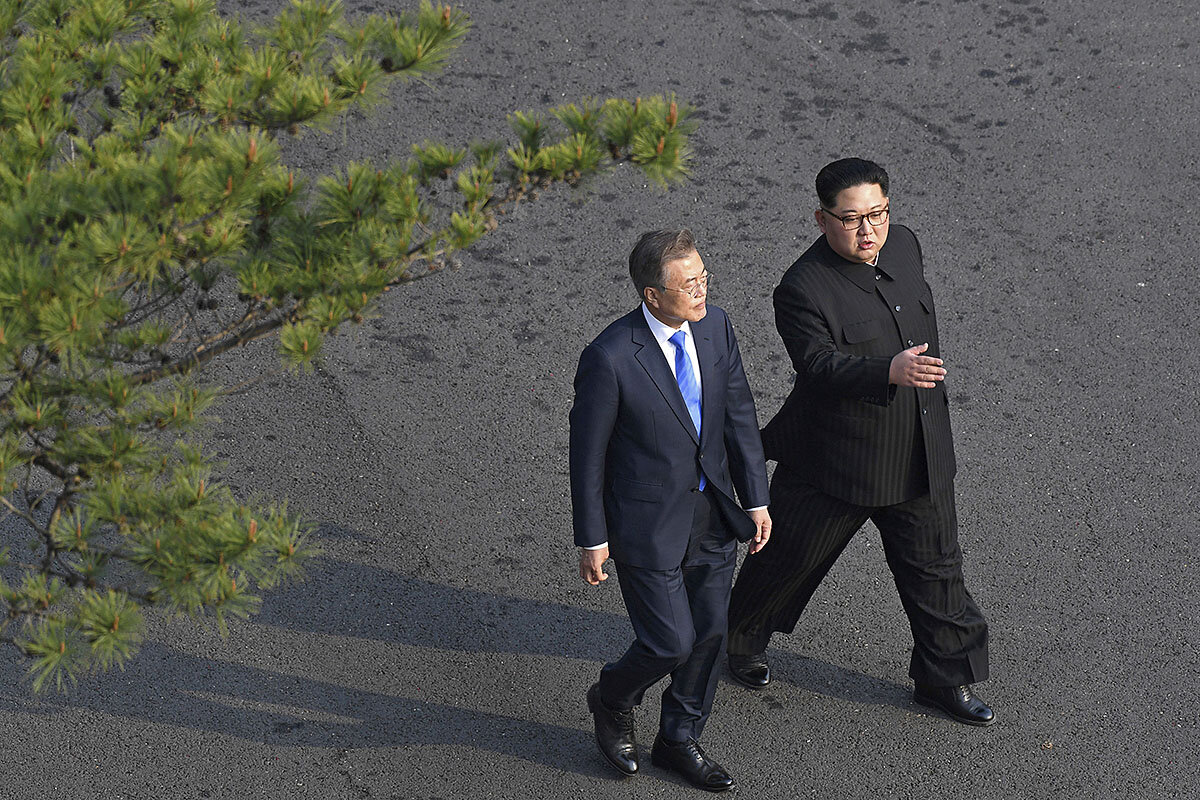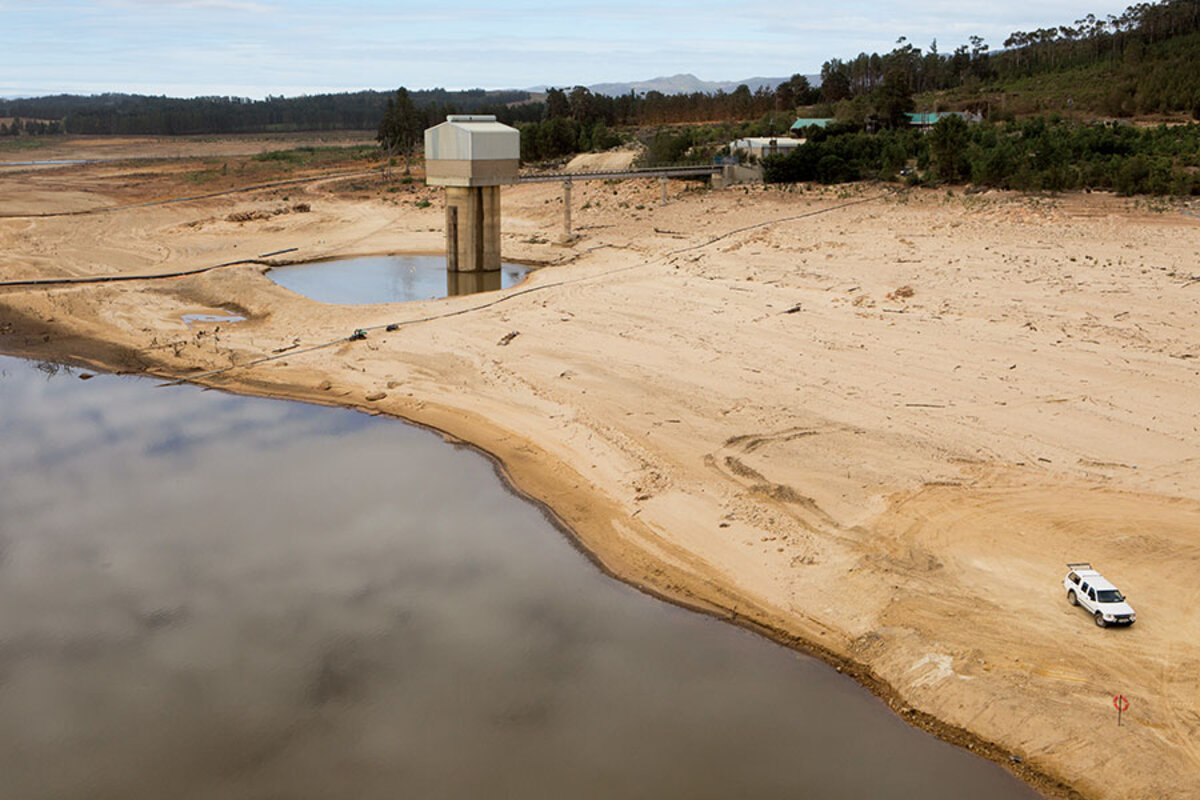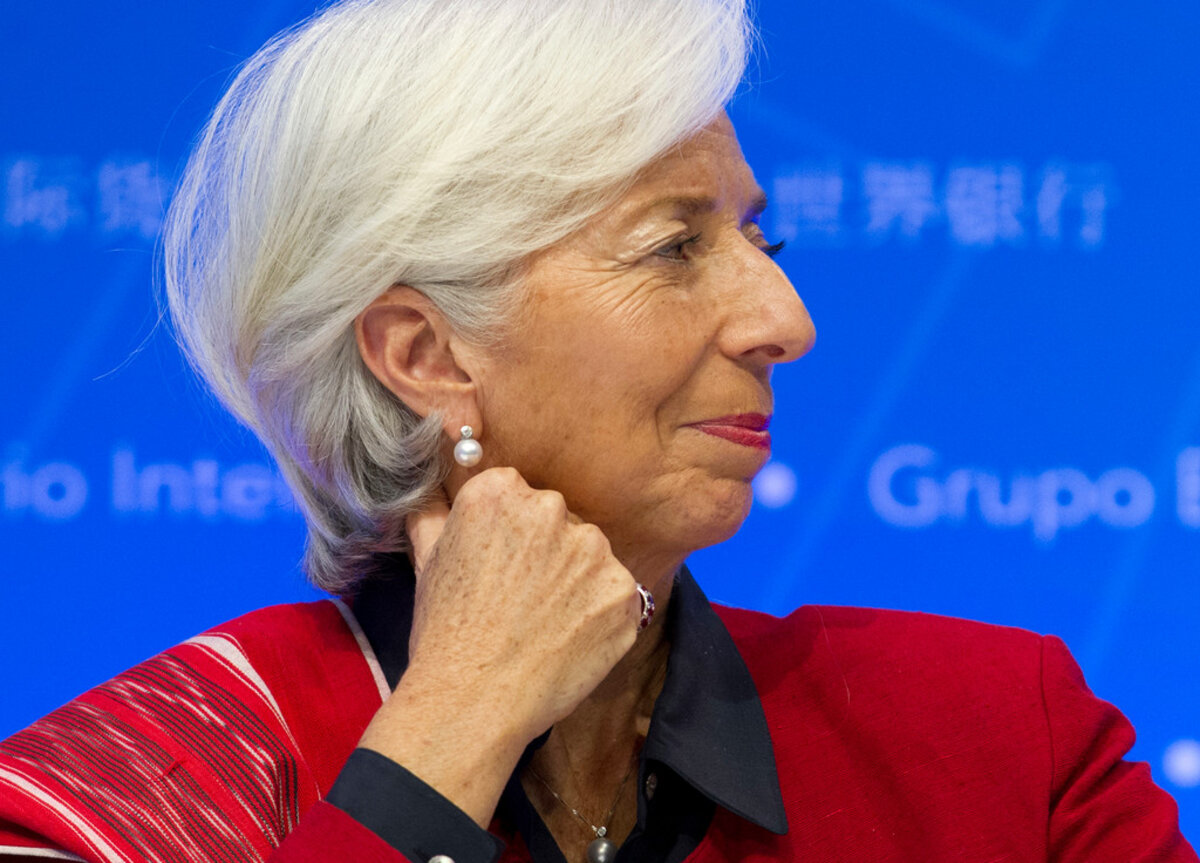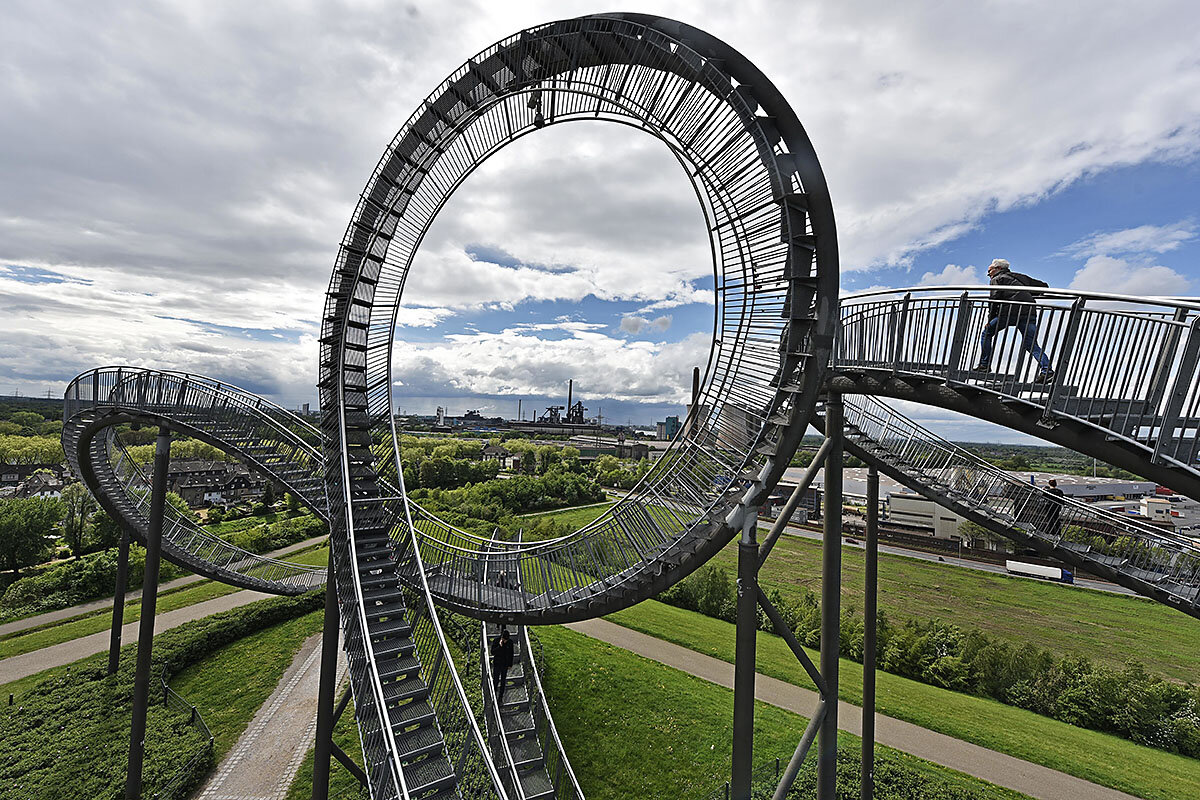The United States and South Korea have different, though somewhat complementary, motives in pushing for peace with North Korea. And the South Korean president is using every lever he has to move his agenda quickly.
Monitor Daily Podcast
- Follow us:
- Apple Podcasts
- Spotify
- RSS Feed
- Download
 Mark Sappenfield
Mark Sappenfield
“That could be my mum … my dad … my uncle … it could be me.”
Those were the words of Sajid Javid, new home secretary for Britain. He was speaking of the “Windrush generation” – a group of migrant laborers who came to Britain to help rebuild after World War II. The son of a Pakistani immigrant, Mr. Javid was appalled by how his government has treated the Windrush generation, threatening them because of their lack of paperwork.
This weekend, the previous home secretary lost her job amid a mounting public outcry. Immigration is “the most explosive force in British politics,” The Economist argues – and that holds true across the West. President Trump launched his campaign by promising a border wall. Britain voted to leave the European Union. Throughout Europe, the reaction to refugees has recast politics.
We’re working on an article about Javid for tomorrow, but his story raises a point worth mentioning here. At a time when the world’s economies are more open and collaborative than at any point in human history, stories like his happen. An economy wants to grow, and it needs people, wherever they’re from.
Border walls that protect a nation’s ethnic or linguistic identity are battling the tide that successful economies inevitably create.
Javid's family – from bus driver father to millionaire banker son – shows what that growth looks like. Uncomfortably, global capitalism is asking the world to push further.
Now, here are our five stories of the day, looking at three efforts to find mutual religious dignity, one city's efforts to push the boundaries of water conservation, and the man who has donned the mantle as defender of the liberal world order.










